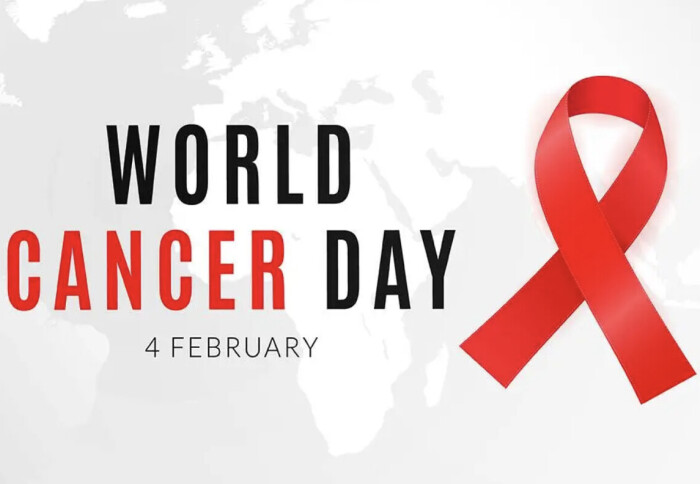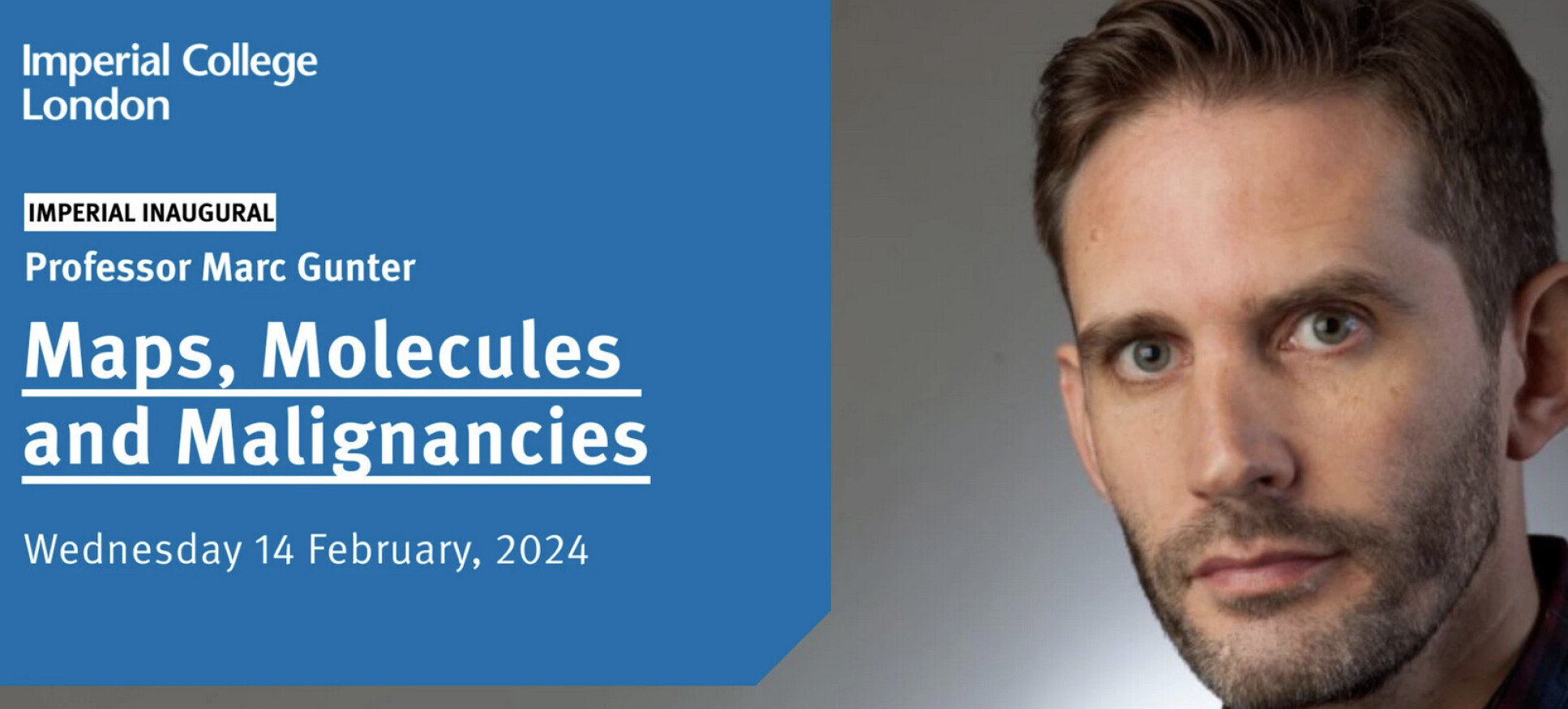Shining a light on Imperial's insights and innovations on World Cancer Day
by Ruth Ntumba

In commemoration of World Cancer Day, we delve into Imperial College London's contributions to advancing our understanding of cancer research.
The onset of cancer occurs when abnormal cells undergo uncontrolled division, leading to the formation of a growth known as a tumour. The initial site where cancer originates is referred to as the primary tumour. In some instances, cancer can spread to other areas of the body, resulting in the formation of a secondary tumour or metastasis. The impact of cancer and its treatments extends to various body systems, including blood circulation, lymphatic and immune systems, and the hormone system. According to Cancer Research UK, one in two people in the UK will experience cancer in their lifetime.
World Cancer Day serves as a crucial platform to enhance global awareness, dispel misconceptions, and foster a deeper understanding of the disease. Reflecting on the past year, we explore the contributions of Imperial's researchers in advancing our comprehension of various cancer types. Additionally, we spotlight the ongoing efforts of colleagues in the as they address research challenges in the pursuit of breakthroughs.
Risk of dying from cancer varies widely across regions in England
A study published in The Lancet Oncology reveals significant disparities in cancer mortality rates across England, emphasising the impact of geographic location on the risk of death from cancer. The research, analysing mortality rates for 10 prevalent forms of cancer between 2002 and 2019, found varying risks depending on the district.
While the overall national risk of dying from cancer before the age of 80 declined for both genders, certain districts, particularly in northern cities like Liverpool, Manchester, Hull, and Newcastle, displayed higher risks. The study identified a correlation between mortality risk and poverty, with the most pronounced inequalities observed in regions with higher prevalence of cancer risk factors such as smoking, alcohol consumption, and obesity.
Professor Majid Ezzati, the senior author and Chair in Global Environmental Health in the School of Public Health, emphasised the urgent need to address these disparities through strengthened public health and screening programs, stating, “Although our study brings the good news that the overall risk of dying from cancer has decreased… it also highlights the astounding inequality in cancer deaths in different districts around England.”
Cancer experts pioneer new training in east of England to transform patient care
 Over 100 cancer specialists who actively participated in multidisciplinary team meetings have enrolled in an innovative learning initiative, believed to be the first of its kind in the country.
Over 100 cancer specialists who actively participated in multidisciplinary team meetings have enrolled in an innovative learning initiative, believed to be the first of its kind in the country.
Dr Tayana Soukup, a Research Fellow in Human Factors at the Department of Surgery and Cancer, established the program following the completion of her PhD on cancer multidisciplinary team functioning and teamwork. As a trained psychologist, she has published numerous papers on assessing and enhancing multidisciplinary teams (MDTs).
These teams convene weekly to provide crucial recommendations for patient care and treatment. The newly funded training, supported by the East of England Cancer Alliances, disseminates recognised best practices, ensuring a more standardised approach in alignment with NHS England's Long-Term Plan directive to revamp MDTs.
Largest study of its kind shows leafy greens may decrease bowel cancer risk
A study, co-led by Dr Kostas Tsilidis from Imperial College London's School of Public Health, reveals that increasing folate intake in the diet or through supplements may decrease the risk of colorectal cancer by up to 7%. Folate, present in leafy greens like spinach, cabbage, and broccoli, was the focus of the largest study of its kind, analysing data from over 70,000 individuals. The research, funded by the World Cancer Research Fund and published in The American Journal of Clinical Nutrition, identified genetic variants influencing how dietary folate, folic acid supplements, and total folate can impact colorectal cancer risk.
Dr Tsilidis noted that “When it comes to bowel cancer, there are a number of things that people can do to reduce their risk, including eating a varied diet – rich in wholegrains, vegetables, fruit, and beans – which supports the findings from this study."
New research uses the iKnife to give an immediate diagnosis for womb cancer
Last year, researchers led by the Department of Surgery and Cancer’s Professor Sadaf Ghaem-Maghami and funded by The Eve Appeal, developed a tool capable of swiftly diagnosing or ruling out womb cancer.
The intelligent knife (iKnife) technology, published in Cancer, could revolutionise clinical practices by delivering rapid and precise diagnoses within minutes for individuals experiencing abnormal vaginal bleeding. The research highlights the iKnife's ability to provide immediate and accurate results when analysing biopsies extracted from the endometrium, the lining of the womb, in women with irregular bleeding.
Social Care Minister visits Imperial for launch of cancer breath test study
Researchers at Imperial, led by Professor George Hanna, studied how breath samples taken in a GP surgery could ensure that people with early pancreatic cancer symptoms, often mistaken for other less serious health conditions, were rapidly referred for scans and lifesaving treatment.
The test detected volatile organic compounds (VOCs) present in the breath. Thousands of chemicals travelled around the bloodstream and were filtered out when the blood reached the lungs, and then breathed out. Cancer cells made different types of chemicals that were detectable in the breath even at the early stages of the disease. This clinical study was the first of its kind, and if successful, the breath test could detect cancer early enough to save thousands of lives each year.
During a visit to Imperial’s Commonwealth Building at Hammersmith Hospital last year, Ms Helen Whately, Minister for Social Care, discussed this research with Professor Hanna and Professor Jonathan Weber and saw first-hand how the simple breath test worked.
Register to attend Professor Marc Gunter’s Imperial Inaugural
 Cancer is a disease that touches everyone – in the U.K, 1 in 2 people will develop cancer at some point in their lives. However, it has been estimated that up to 80% of the cancer burden in high income countries could, in theory, be prevented if only we better understood its causes and could translate that knowledge into effective prevention strategies.
Cancer is a disease that touches everyone – in the U.K, 1 in 2 people will develop cancer at some point in their lives. However, it has been estimated that up to 80% of the cancer burden in high income countries could, in theory, be prevented if only we better understood its causes and could translate that knowledge into effective prevention strategies.
Join Professor Marc Gunter, online or in person, where he will be delivering his Imperial Inaugural lecture. Professor Gunter has dedicated his career to identifying new causes of cancer and understanding their molecular basis. In particular, he has focused his research on how obesity and metabolic dysregulation can cause certain cancers and has applied new molecular technologies to large-scale population-based cohorts and intervention studies to gain novel insights into cancer development.
In addition to describing his research journey and academic accomplishments, Marc’s inaugural lecture will reflect on his early curiosities on geography and genetics that led him to pursue a career in cancer epidemiology and how his training in biochemistry as well as epidemiology has allowed him to forge new inter-disciplinary research.
Interested in being at the heart of cancer research?
The Faculty of Medicine has been running its popular MRes Cancer Biology course for many years, with students being able to take one of two streams: Cancer Informatics or Cancer Biology. In 2023, the course team and Faculty were excited to launch a new Cancer Biology stream; Cancer Innovation.
This exciting new stream offers students an opportunity to make an impact on cancer research by focusing on the development of novel, innovative approaches to biological and medical problems in cancer. By giving students the chance to learn at the forefront of cancer innovation, with a focus on real-world applications, they will be able to build their understanding of cancer biology and learn to translate and communicate new technologies.
Blended learning with demonstrations and workshops will train students in the translation of biotechnology platforms, from concept to realisation and onward to application in the clinical/commercial environment.
Article text (excluding photos or graphics) © Imperial College London.
Photos and graphics subject to third party copyright used with permission or © Imperial College London.
Reporter
Ruth Ntumba
Faculty of Medicine Centre